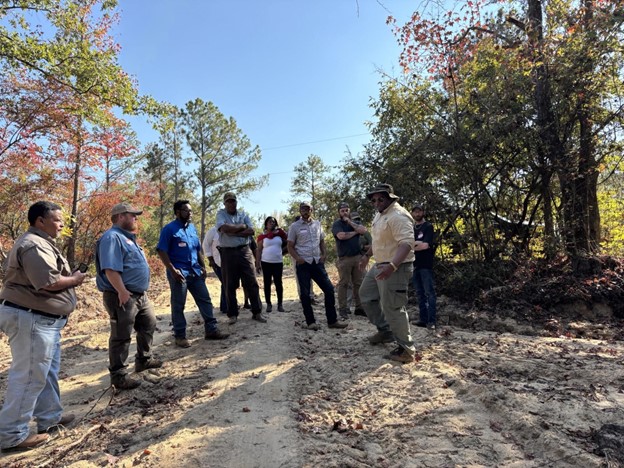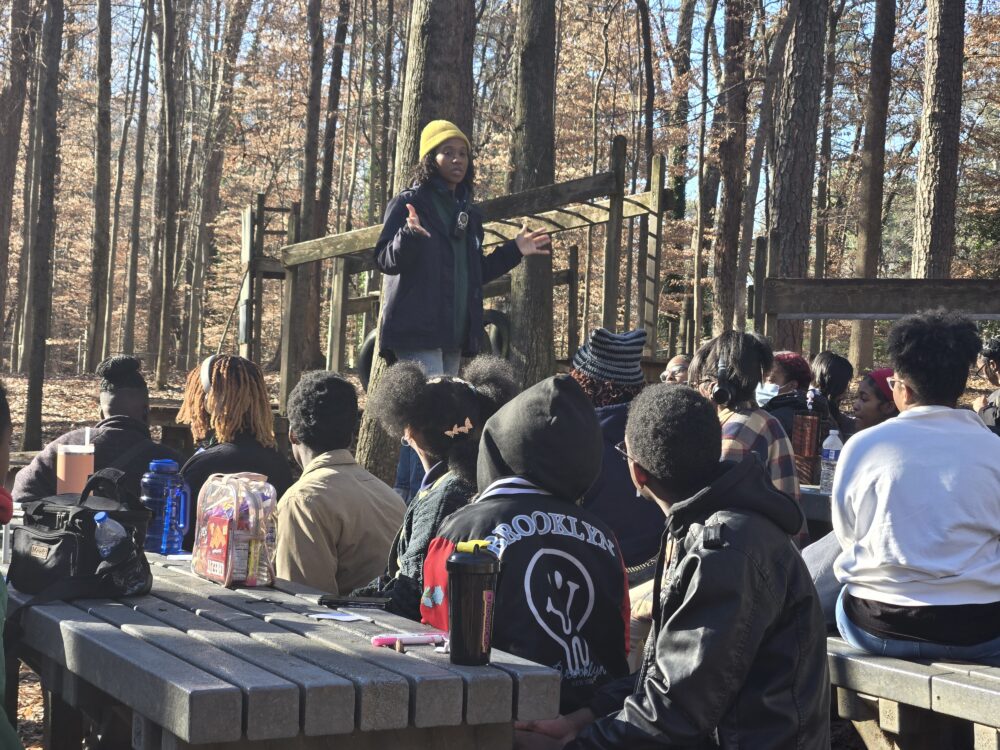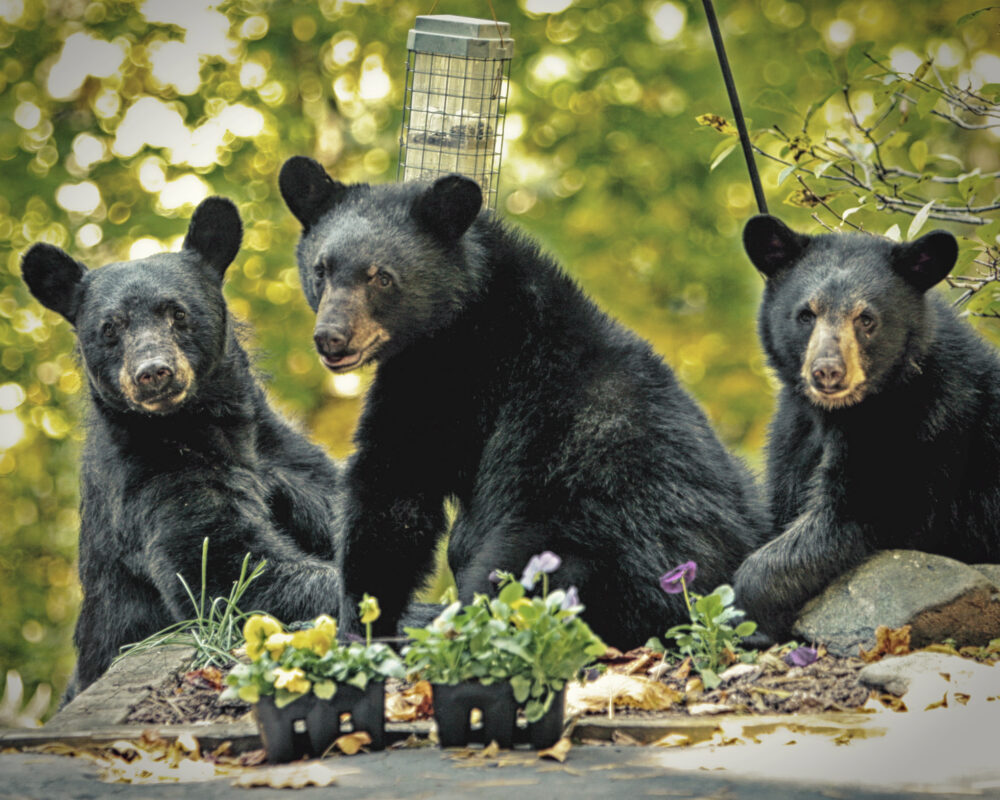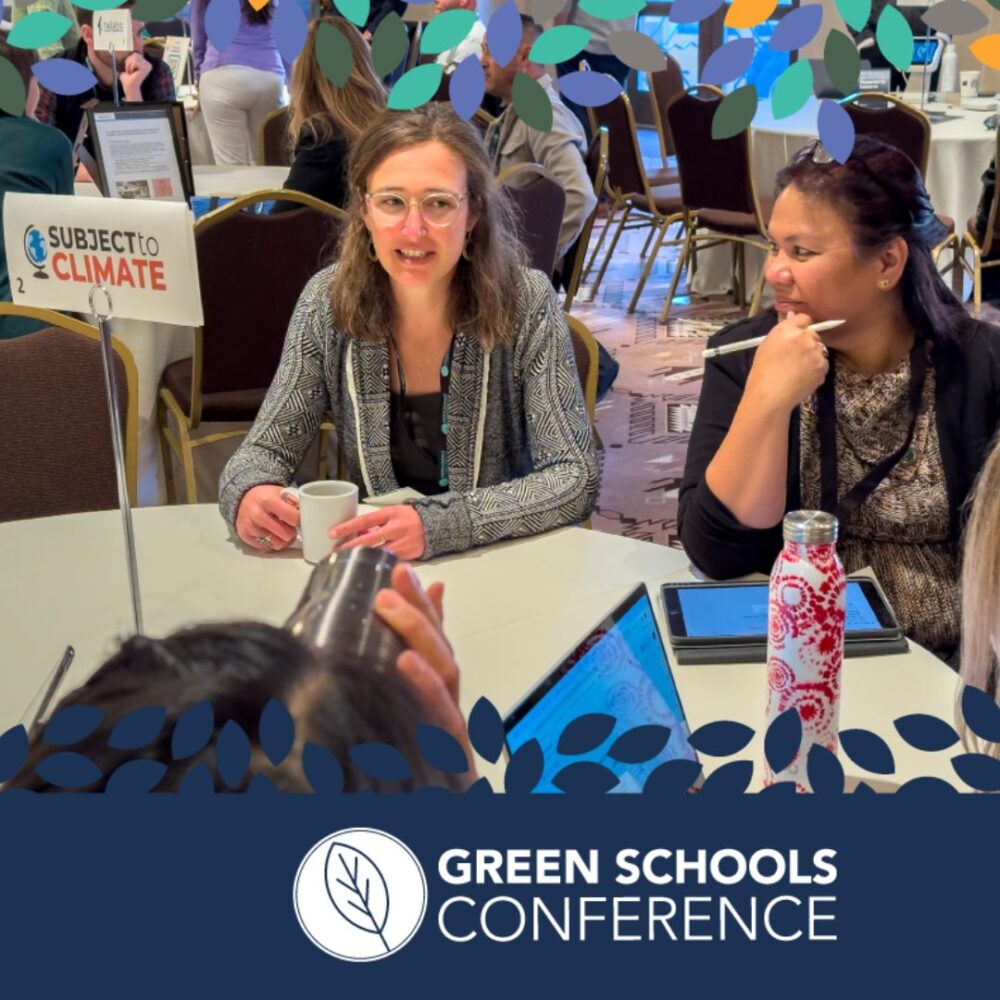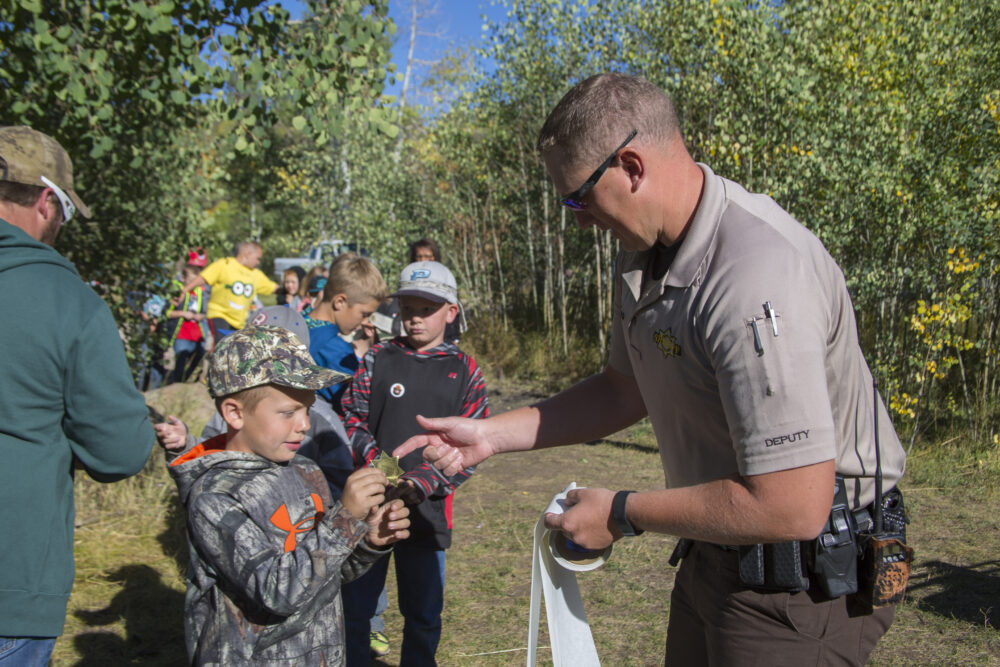We have much more to do and your continued support is needed now more than ever.
Climate Education Takes Center Stage at Climate Week NYC 2024
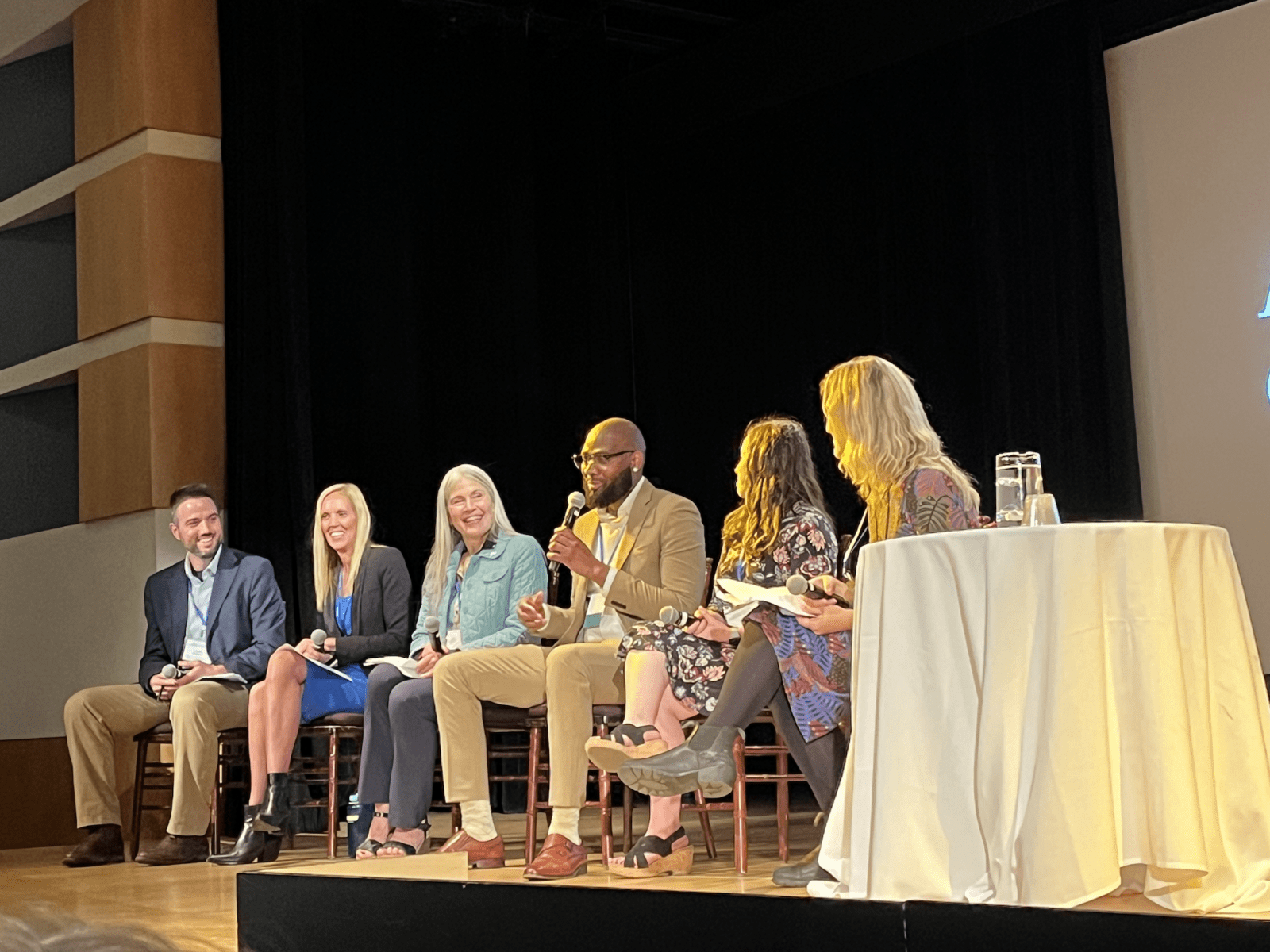
This year at Climate Week NYC (September 22-29, 2024) National Wildlife Federation (NWF) and its partners collaborated to address climate education through a series of events that engaged educators, student leaders, conservationists, and decision-makers. The intergenerational presentations, panel discussions, and workshops focused on how to support teachers and students in both accessing and advancing meaningful climate education.
Climate Education is a Key Climate Solution
Student learning nationwide and globally has been disrupted as a result of school closures due to air pollution, extreme heat, wildfires, and flooding. Moreover, according to a 2023 report, climate change negatively impacts mental health in two out of three youth. Despite the increasing impacts of climate change on young people and children, most students only receive one to two hours of climate instruction per school year. While education was not an official theme at this year’s Climate Week NYC, this is the first year the topic was addressed by a collective of partners, marking a significant shift from prior years.
Educating for Climate Action Summit
The “Educating for Climate Action Summit,” co-hosted by The Wild Center, NOAA, NWF, and the Smithsonian at the National Museum of the American Indian on September 24th, was attended by over 400 educators and partners, as well as over 200 attendees who tuned in online. NWF Senior Specialist Elissa Teles Muñoz led an engaging “Intergenerational Conversation.” The discussion focused on how climate change is addressed in both classrooms and informal educational settings.
Panelists highlighted the need for innovative solutions to overcome systemic barriers that hinder meaningful learning for students. Maggie Handelman, a member of the CRETF Youth Steering Committee and a senior at a public high school, shared her experiences with inadequate climate education and called on adult allies to engage in honest discussions with young people as they support their pursuit of change.
You can watch a recording of the keynote presentation by Tecumseh Ceaser and the intergenerational panel here
Emily Fano, NWF’s Director of Climate Resilience Education, assembled a panel, Climate Education Policy in NY: Charting a New Path Forward with members of CRETF’s policy committee. Panelists highlighted CRETF’s efforts to foster an intergenerational movement for climate education in New York.
The state’s climate literacy standards were compared to those of other states and countries, and specifically how U.S. politics, influenced by fossil fuel interests, has resulted in a scarcity of climate education policies. Additionally, complex learning standards and accountability systems hinder teachers from incorporating climate topics into their classrooms.
Attendees were reminded about the urgency of the climate crisis and the importance of climate justice and social movement mobilization to bring about change. The panel ended with a discussion about CRETF’s progress in advancing climate education policy in collaboration with state actors and students.
In a subsequent session, Fano introduced a panel of four stellar teachers for NYC K-12 Climate Educators Share Best Practices: Models of P-12 Interdisciplinary, Justice Centered, Solutions Focused Climate Education.
Elementary educator Vicki Sando spoke about the ways in which she has used the 15,000 square-foot green roof and the aligned curriculum she created at PS 41 in Manhattan to teach students about stormwater management, energy and biodiversity. For her Kindergarteners, Sando has launched team challenges to protect playgrounds from flooding and made connections to a local resiliency project.
Young students measure surface temperatures and observe how green space lowers these temperatures. In first-grade Sando employs STEM lessons on designing systems to clean up oil spills and removing plastic pieces from water.
Middle school educators Lynn Shon and Andrew Zimmermann discussed their journey as co-founders of the Brooklyn Harbor Middle School in Red Hook, Brooklyn. Their vision was to build a school that centered the community, and the most critical issues facing it. Red Hook is disproportionately impacted by climate and environmental hazards and injustices.
Shon and Zimmermann designed an interdisciplinary STEAM curriculum that centers climate justice and climate action through real-world problem-solving. Students learn about the offshore wind turbine farm being built in the South Brooklyn Marine Terminal. They play the role of wind turbine engineers, designing blades that produce the greatest RPM and highest voltage, and present their projects to wind engineers who visit the classroom. They are also learning about tree care, biodiversity, and sustainable eating.
Robert Markuske, Marine Affairs teacher at the New York Harbor School on Governor’s Island shared how his three-year Career and Technical Education (CTE) program exposes students to a variety of sectors and industries related to natural resource management through the lens of sustainability.
Thanks to a variety of partnerships with NGOs, universities and institutions, students learn about shipping and fishing industry practices and consider how those could be improved; they become stakeholders in waterfront edge design; grow and harvest food on a local urban farm, and advocate for environmental policies.
These have included minimizing the dumping of hazardous waste in the Hudson River, implementing schoolwide composting, and lobbying for the creation of a Marine Debris Office within NYC Parks. All panelists stressed the importance of partnerships in their teaching.
Building a Resilient Future: New York’s Climate Education Movement
On September 25, NWF partner SubjectToClimate, NWF’s Climate and Resilience Education Task Force (CRETF), and the American Museum of Natural History, co-hosted an event that focused on the future of climate education in New York state. The event, Building a Resilient Future: New York’s Climate Education Movement, featured an expert panel discussion from New York-based climate education stakeholders across a variety of sectors, and marked the public launch of the New York Climate Education Hub.
CRETF members Joseph Henderson and Meredith McDermott participated in a panel discussion focused on effective strategies for incorporating climate education across various grade levels and subject areas, as well as in museum and non-formal programming. Henderson, a professor of environmental studies and visiting lecturer at the University of Vermont, shared his insight on the CRETF’s years-long journey pursuing climate education policy reform in New York State, as well as the complexities of the United States’ education system more broadly.
McDermott, the Director of the Office of Energy and Sustainability for NYC Public Schools, shared her office’s efforts to expand access to climate education to the district’s more than 1,800 schools through a series of annual Climate Action Days.
Case Studies of Quality Climate Education from Around the World
On September 26, the CRETF and the Monitoring and Evaluating Climate Change Education Project (MECCE) co-hosted a webinar to explore what ‘quality climate change education’ means in different places through a series of case studies from Argentina, Canada, the UK, and the United States.
A diverse group of international participants presented on a variety of projects to advance the teaching and learning of climate change education in their countries. NWF Senior Specialist Elissa Teles Muñoz presented on the CRETF as a model for intergenerational grassroots climate education advocacy and engagement. The webinar produced meaningful cross-cultural comparisons between four distinct projects, such as the importance of community building and integration.
You can watch a recording of the event here.
Climate Education for Sustainable Cities: Solutions that Inspire
To wrap-up a long week of inspiring events that engaged thousands of people, Emily Fano, Elissa Teles Muñoz, and CRETF member Paola Garcia visited Governor’s Island on September 27th for an event hosted by the New York Climate Exchange that brought participants on a tour of Grow NYC’s teaching garden.
Climate Week NYC provided an opportunity for the climate education community from New York City, across the country, and beyond to come together, celebrate collective victories, learn about the unique challenges we each face in different contexts, and discuss aspirations for the future.
One message in particular carried through in each event: in order for climate education to gain the momentum it requires and deserves, partner organizations cannot uplift each other’s efforts while still “working in silos.” Rather, we must create clear and tangible pathways for collaboration, coalition building, and collective mobilization.
NWF thanks the following organizations for their partnership during Climate Week and beyond: The Wild Center, NOAA, Smithsonian Institution, Subject to Climate, American Museum of Natural History, NYC Public Schools Office of Energy & Sustainability, Yale Program for Climate Change Communication and especially NYC teachers and students and all of our panelists.
To get involved in CRETF’s efforts to expand access to P-12 climate education and teacher training in New York, visit our website.
Elissa Teles Muñoz is a climate education leader, youth mentor, and program manager. She is currently NWF Senior Specialist, managing the New York-based Climate and Resilience Education Task Force. She started her own small business for climate education program creation and management in 2023, EarthMinds Consulting, and has expanded her range to take on more clients including the Climate Mental Health Network, for whom she manages their K-12 programming. Elissa’s work lies at the intersection of climate advocacy, education, mental health, and youth empowerment, driven by a vision of a sustainable and equitable future for students and young people all over the world.







